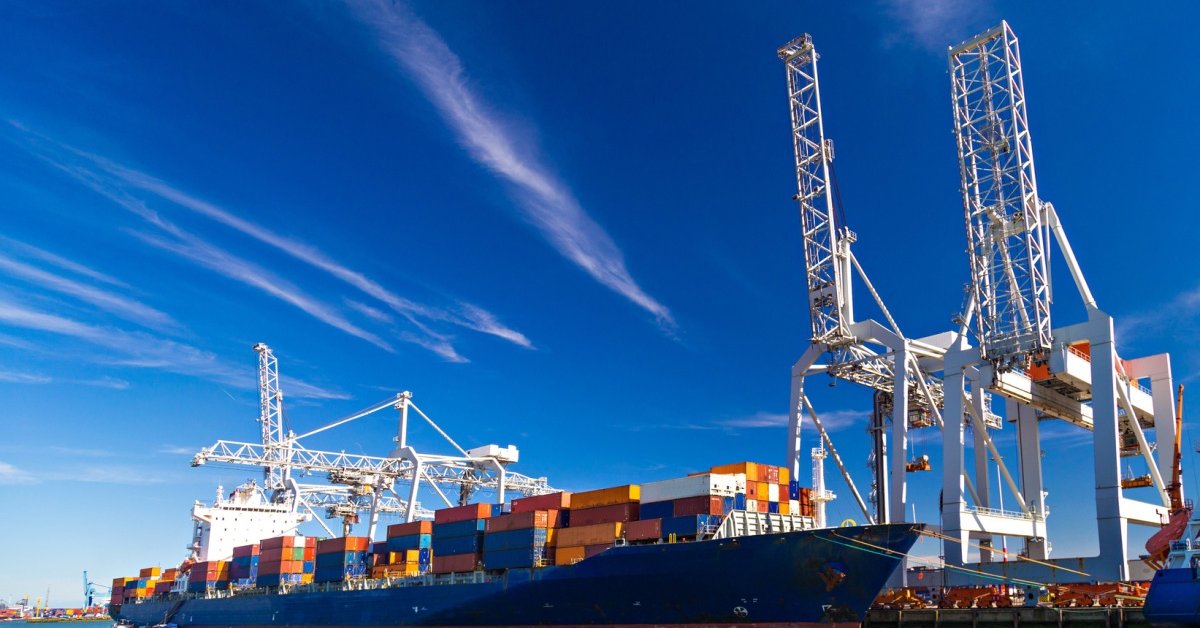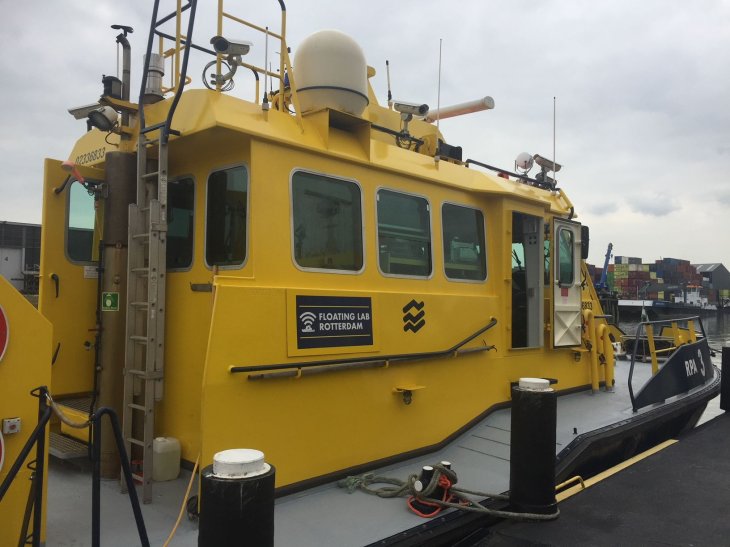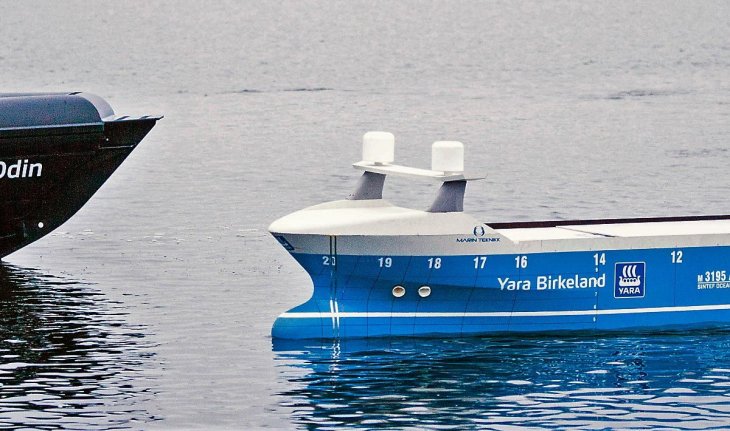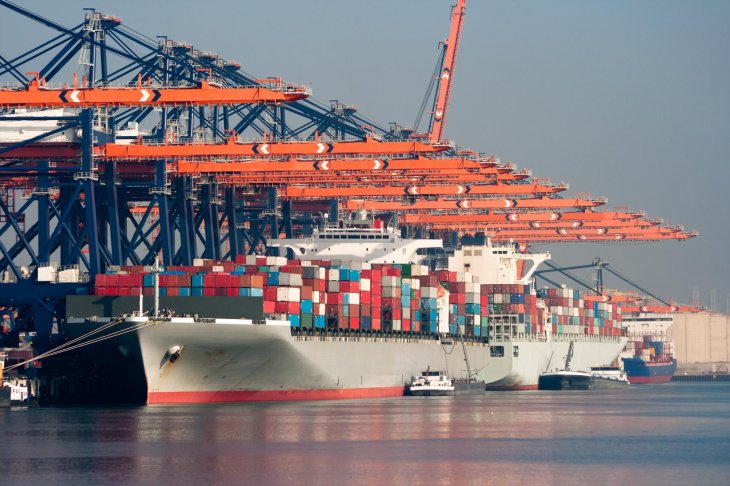Rotterdam Port Is Testing Their First Autonomous Ship
Aadhya Khatri - Mar 13, 2019

The technology they are working on can automate any ship
The idea of unmanned transport is not only applicable for cars but also for sea vessels. And people in the industry have high hope for this kind of technology as it may help decrease the number of accidents, solve the pressing issue of lacking quality employees, and relieve congestion at ports.
At Europe’s busiest port, Captain AI is working hard to build the world’s first safe autonomous ship. What go into the making of this innovation are deep learning algorithms, a patrol boat, and a simulator for captain training.
According to Vincent Wegner, Captain AI’s CEO, they had already had all they needed to build the ship, the problem here now was to find a way to combine all the elements. They have had both the needed hardware and the software; equipment is getting more affordable and the open-source nature of the software allows the company to accelerate the work.
The Floating Lab

After the success with an unmanned sightseeing boat in 2017, this summer will see the Floating Lab Rotterdam making its first journey without the support of a captain on board.
There is nothing particularly interesting about the appearance of this ship, apart from a series of cameras on its bridge. To aid its upcoming endeavor, a digital GPS, which is more accurate than a typical system, is there to provide the exact location of the ship. The sensors will help keep track of the ship’s courses and its engine, and all the information will be processed by computers both on the ship itself and on land.
This ship was adapted to be used as a test subject for companies and universities to speed up the process of making an autonomous vessel with the purpose of changing the industry and decreasing emission.
With the responsibility to not only the economy but also the whole community in mind, Rotterdam port is working toward innovation for the industry and it is collaborating with startups to realize that ambition, said Marjolein Boer, Port of Rotterdam’s Innovative Manage.
She also shared that The Floating Lab is just the beginning of a large number of tests with more complication after each one is done. While the law requires a human on board, the ship will operate autonomously and increase the distance it covers.
The Competition

There are other companies which are working toward an unmanned vessel other than Captain AI. Norway has already had one of such ships, the Yara Birkeland, which is set to be fully operational next year. Other than manufacturing autonomous vessels, Norwegian companies intend to even supply equipment for the process. A prime example is Massterly with ship design and the whole controlling system on offer.
What Captain AI is aiming at is flexible technology that can suit any size of vessels. The simulator system in use was the creation of VSTEP. It contains all the needed information on the locations of all the ports in the world and can be used for ships serving a wide range of purposes.
Converting Existing Ships

If things go according to plan, the system Captain AI is working on will be the only thing required to turn a typical ship into an autonomous one. This transition will come at the cost between $20,000 and $35,000, which is still a reasonable sum for all the benefits of an unmanned vessel could bring.
As with other conversation related to automation, the question of eliminated jobs was raised. Wegner said that the application of unmanned ships calls for new kind of employment, which are specialists for the system and captains who work on land.
Large vessels that cover long distance still require human on board for monitoring the engines but smaller ones can go autonomous and the current space for crews can be turned into storage for cargo.
In the near future, Captain AI thinks that vessels like the water bus can be automated and can sail even when it is shrouded in fog.
Wegner remained optimistic that in the next two years, unmanned ships will be a thing but if international legislation fails to keep up, the adoption might be stalled. However, if they have the system fully operational and the favor of the law, Rotterdam could be the leading port to have autonomous ships sailing in and out as the usual scene.
Featured Stories

Features - Jul 01, 2025
What Are The Fastest Passenger Vehicles Ever Created?

Features - Jun 25, 2025
Japan Hydrogen Breakthrough: Scientists Crack the Clean Energy Code with...

ICT News - Jun 25, 2025
AI Intimidation Tactics: CEOs Turn Flawed Technology Into Employee Fear Machine

Review - Jun 25, 2025
Windows 11 Problems: Is Microsoft's "Best" OS Actually Getting Worse?

Features - Jun 22, 2025
Telegram Founder Pavel Durov Plans to Split $14 Billion Fortune Among 106 Children

ICT News - Jun 22, 2025
Neuralink Telepathy Chip Enables Quadriplegic Rob Greiner to Control Games with...

Features - Jun 21, 2025
This Over $100 Bottle Has Nothing But Fresh Air Inside

Features - Jun 18, 2025
Best Mobile VPN Apps for Gaming 2025: Complete Guide

Features - Jun 18, 2025
A Math Formula Tells Us How Long Everything Will Live

Features - Jun 16, 2025
Comments
Sort by Newest | Popular